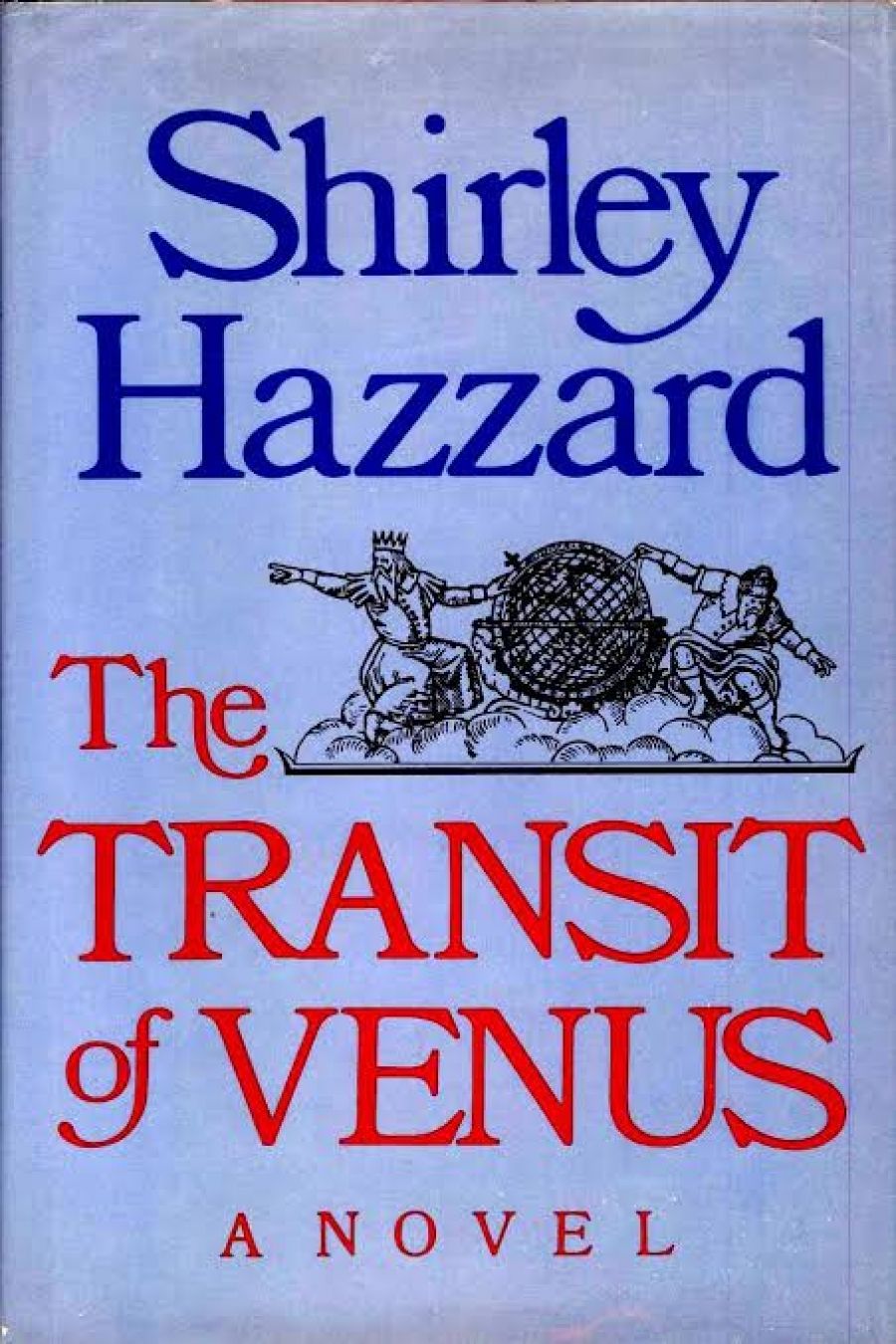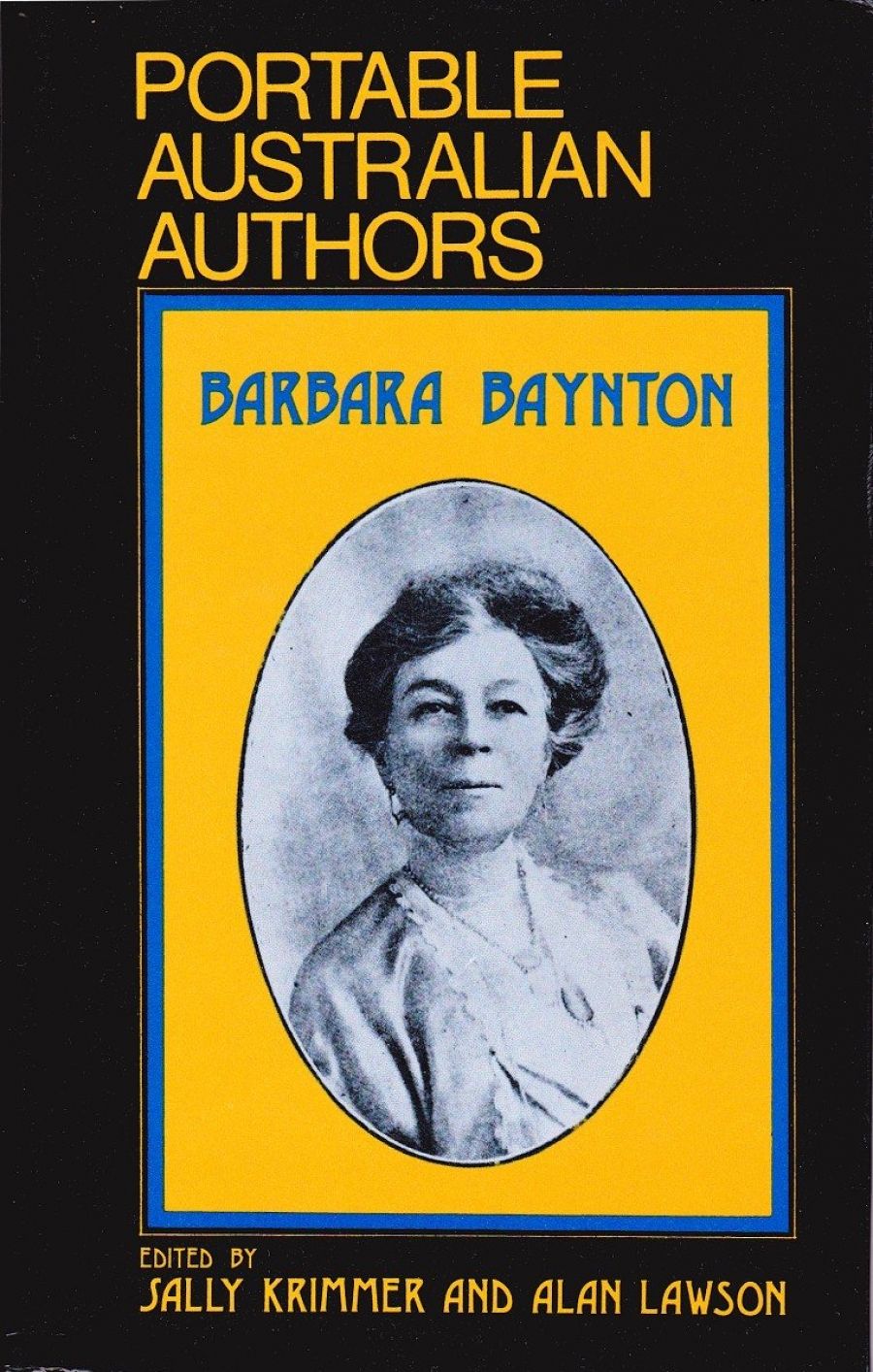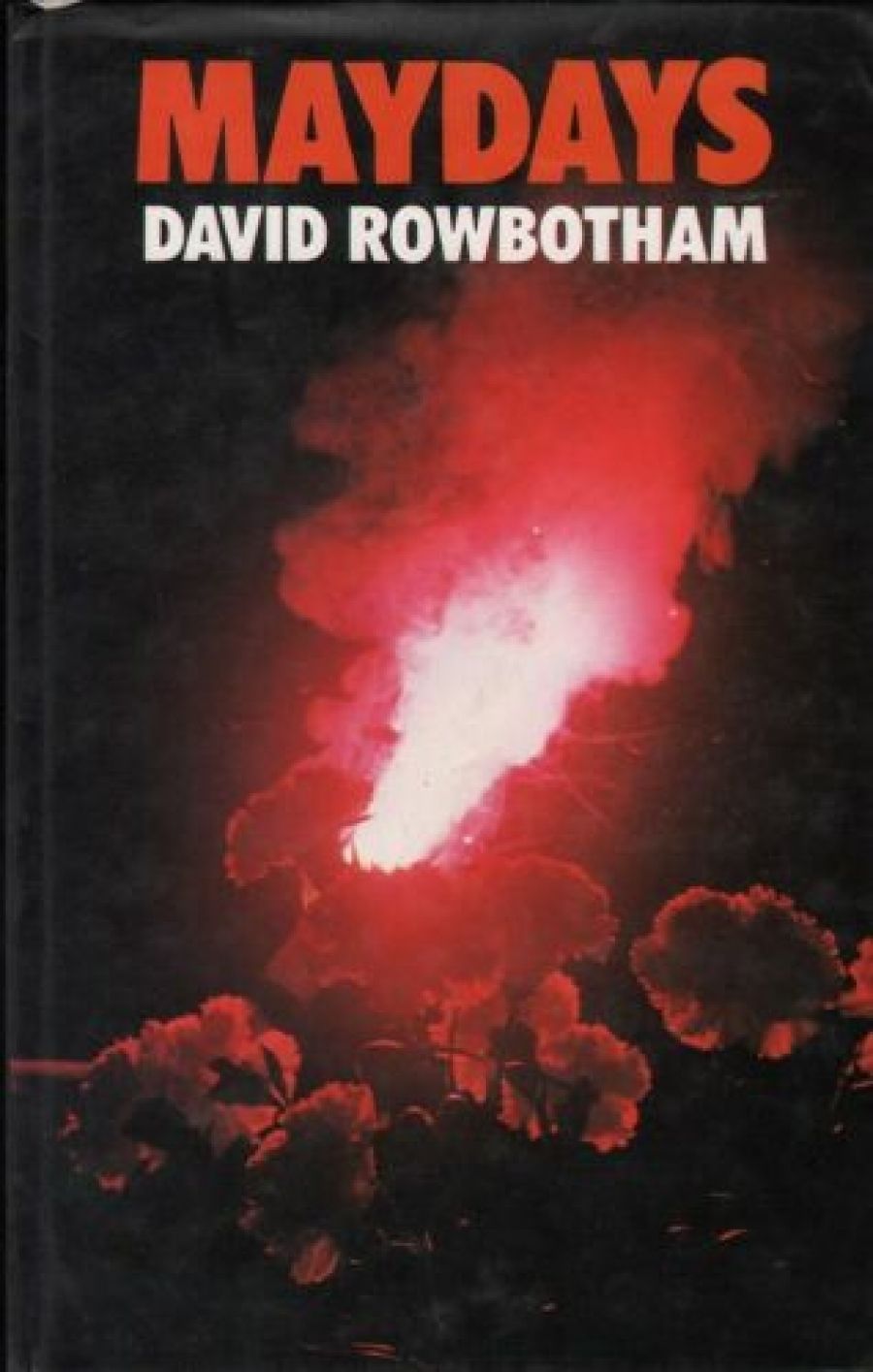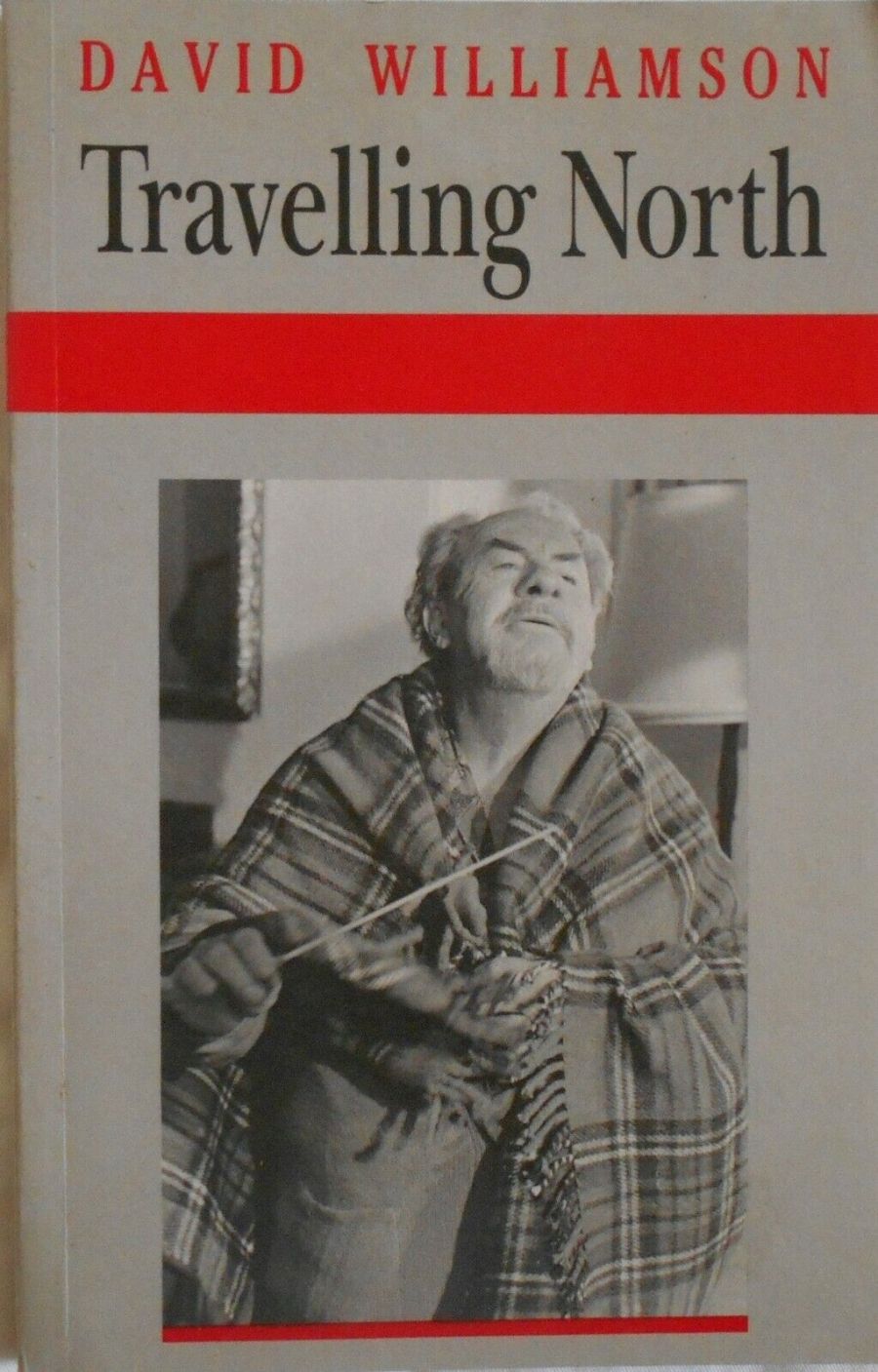- Free Article:
No
- Contents Category:
Theatre
- Custom Article Title:
Responsibility and desire
- Review Article:
Yes
- Show Author Link:
Yes
- Show Byline:
Yes
- Article Title:
Responsibility and desire
- Online Only:
No
- Custom Highlight Text:
Is there life after fifty? David Williamson’s newest play wittily affirms that love, adventure, and increasing self-knowledge are not the exclusive preserves of the young. Frank, seventy-five, retired engineer and ex-communist, is no spring chicken but neither is he ‘defunct in the physical area’.
- Book 1 Title:
Travelling North
- Book Author:
David Williamson
- Book 1 Biblio:
Currency Press, $4.95, 88 pp
- Book 1 Author Type:
Author
- Book 1 Cover Small (400 x 600):
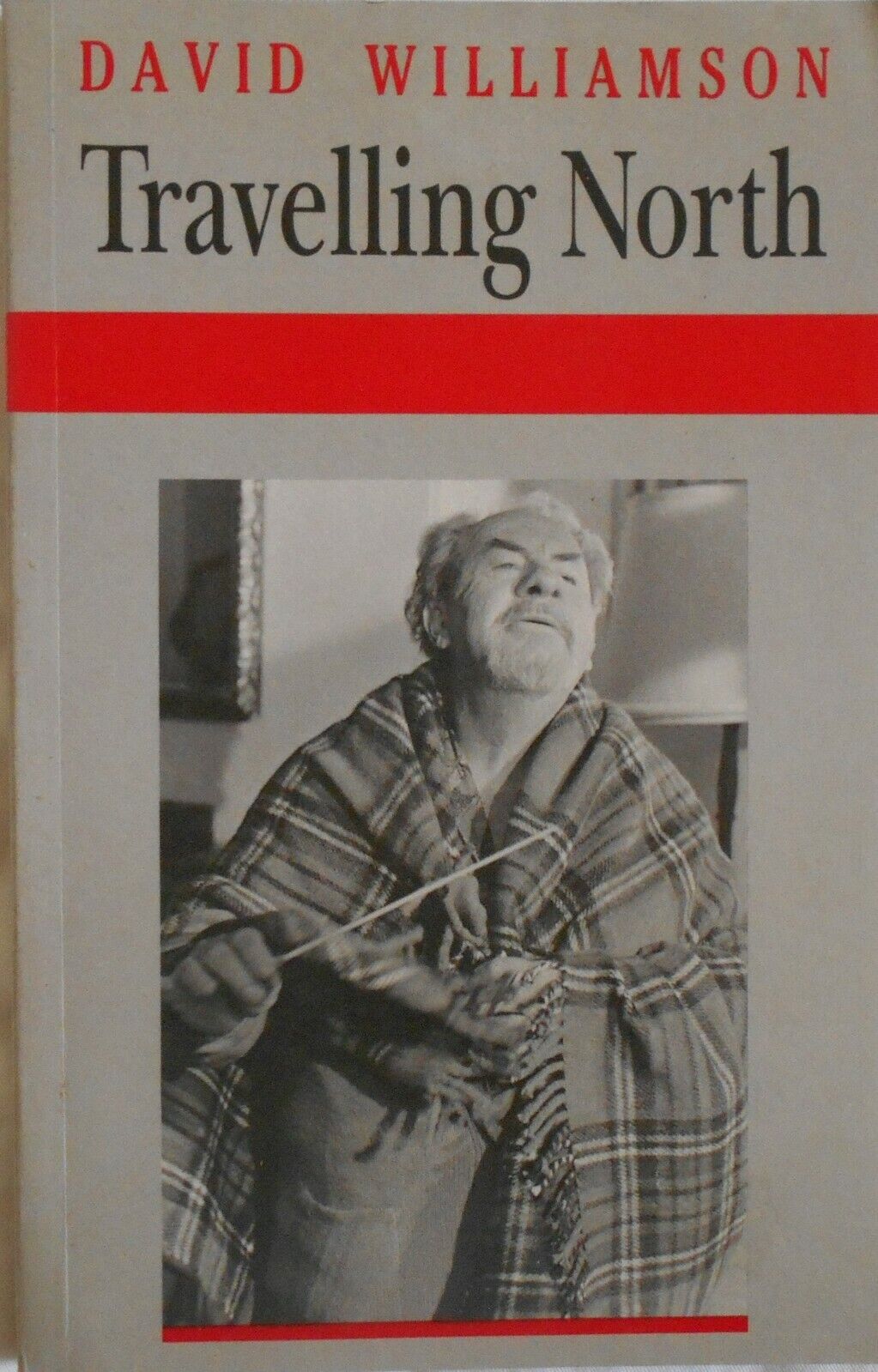
- Display Review Rating:
No
Is there life after fifty? David Williamson’s newest play wittily affirms that love, adventure, and increasing self-knowledge are not the exclusive preserves of the young. Frank, seventy-five, retired engineer and ex-communist, is no spring chicken but neither is he ‘defunct in the physical area’. With his fifty-five-year-old lover, Frances, he sets off in his campervan to fulfil the dream of affluent Victorians to retire to the indolent pleasures of life in the tropical north. Through the course of the play Frank’s heart grows steadily weaker, his sight and hearing begin to fail. He dies with his remaining faculties very much intact, enjoying life to the full, his cynical wit and acerbic intelligence as powerful as ever.
Travelling North is not concerned with offering glib panaceas to hopeful geriatrics or illusory prospects of perennial Indian summers for the elderly. It is a very original play, not merely in its plotting but with the revelation of its principal characters and with its overriding interest in the changing relationship between them. An important underlying theme is the conflict of responsibility with personal desire. Frank is a pragmatist, egocentric, loving mankind in general but thoughtless about those nearest to him until Frances, exasperated, calls him ‘a rude, arrogant, despotic old bully’. He was carelessly unfaithful and denigrating to his wife, perfunctory and dismissive with his children. He still cannot understand why his son hasn’t spoken to him for fifteen years and why his daughter avoids marriage and motherhood.
Frances, Williamson’s most convincingly well-rounded female character to date, exudes an underlying tension and anxiety caused by the guilt she feels at leaving her married daughters in Melbourne against their disapproval and living with Frank outside marriage. Through the play she is torn between her responsibilities to them and to Frank until, at the play’s close, she assumes responsibility for herself alone. Her daughters use her as a pawn in a power struggle to achieve the suburban ideal of the built-in babysitter, playing on the guilt she feels at not having provided them with a perfect childhood. Until he comes to realise his imperfections, Frank plays on her uncertainty, turning her love for him into guilt and making her his slave instead of his companion.
An ironic sidelight, on the masculine view of love and responsibility, comes from Saul, Frank’s doctor, and Freddie, a friendly neighbour, who both indicate their willingness to come to Frances’s aid should anything happen to Frank, implying that either would be willing to take over his role in her life. Both, for all their affection for Frank, have few scruples about bidding for what they see as his most desirable chattel.
The play is built up of twenty scenes balancing and interacting with each other to reveal the complex relationships between the characters. The writing is extraordinarily economical, always advancing the forward movement of the play and at the same time inviting the range of emotional responses from sorrow to laughter that we encounter in the real world which this play so convincingly reflects.
